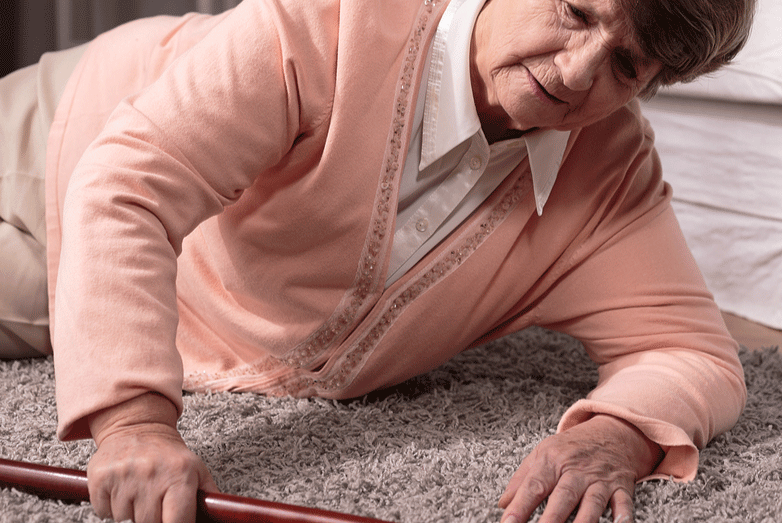There are fundamental steps you must take after your elder parent falls in order to promote faster healing and reduce the risk they fall again. A fall can signal a new and potentially serious medical condition that needs treatment as soon as possible.
After a fall your loved one should go to the doctor as soon as possible. Some doctors may be too busy to put in the right amount of effort, so make sure to press them to run all of the tests they can. Sure, your loved may have just tripped over his or her feet, but then again, there could likely be an underlying problem that caused them to fall.
What The Doctor Should Check For After A Fall
Your loved one needs to be fully checked over by their doctor following a fall to ensure there are no larger underlying issues. A thorough doctor should check for all of the following:
-Run tests to check for the presence of any underlying illnesses. Anytime an elderly person experiences abnormal weakness or delirium the doctor should be alerted, even if no one has fallen yet. So many ailments can cause weakness and falls in elderly people, such as:
-Urinary Tract Infection (UTI)
-Anemia
-Dehydration
-Pneumonia
-Heart problems
-Strokes
-Check blood pressure and pulse, especially if they have been complaining about light-headedness or even fainting, which leads to the falls. Certain medications can cause a dip in blood pressure when simply sitting down and standing.
-Run blood tests to make sure that blood count is healthy and there is not too much or too little blood sodium. This includes a complete blood count panel (CBC) as well as electrolytes and kidney function. If your loved one suffers from diabetes and uses insulin or another medication that lowers his or her blood sugar, always bring in the glucometer or blood sugar log to the doctor. When blood sugars drop it can cause a fall, unfortunately, if the drops are quick they are not detectable.
-Review medications. A thorough doctor should ask for a full list of medications you take in order to ensure the cause of the fall is not related to a certain pill. Some medications are known to increase the risk of falling.
The most common medications associated with a higher risk of falling include:
-Sedatives, tranquilizers or sleeping medications. Examples include Ambien (sleeping medicine), Lorazepam (anxiety) or risperidone (used to treat certain side effects of dementia).
-Medication for blood pressure or diabetes. This can be especially true if one is overmedicated for high blood pressure, causing levels to spike down lower than normal.
-Anticholinergic medications include things like allergy pills and pills for overactive bladder, vertigo, nausea, depression and a number of other things. Generally, elderly patients take these medications with no idea that they could possibly contribute to falls.
-Gait and balance test. The doctor should assess how the elderly person is able to walk. If they are having issues maintaining balance it’s important to address any pain that may be contributing to it. There are also physical therapists out there that specialize in gait and balance and helping to reduce the risk of a fall.
-Make sure there are no underlying heart or neurological conditions. It is rare, but in some cases an elderly person falls due to the development of an underlying heart or neurological problem. Even though it’s rare it’s important to catch it early so it’s better to look for it than to assume it’s not there.
Preventing Future Falls
An elderly adult that has fallen once is far more likely to fall again. That’s why it’s important to reduce as many risk factors for falling as possible. Go around your loved ones home looking for anything they could potentially trip over. Always ask how and where they fell after the matter in order to pinpoint what’s tripping them up. Loose carpets, bulky furniture or a messy closet, just about anything can cause your loved one to trip.
Make sure to add sticky pads to shower and bathtub floors, or anywhere else slick.
Tips To Help Your Loved One Heal Faster
Make sure your loved one gets plenty of rest so that their body has the strength to heal.
Follow all doctor orders carefully and make follow up appointments as needed.
Keep them clean and comfortable, taking special attention to cleaning and dressing any wounds developed during the fall.
Hire help if you need it. You can’t expect to take on full time caregiver unless you were doing nothing before.
You can count on Stellar Transportation to take your loved one wherever they need to go. We specialize in elderly, wheelchair and stretcher patients.

